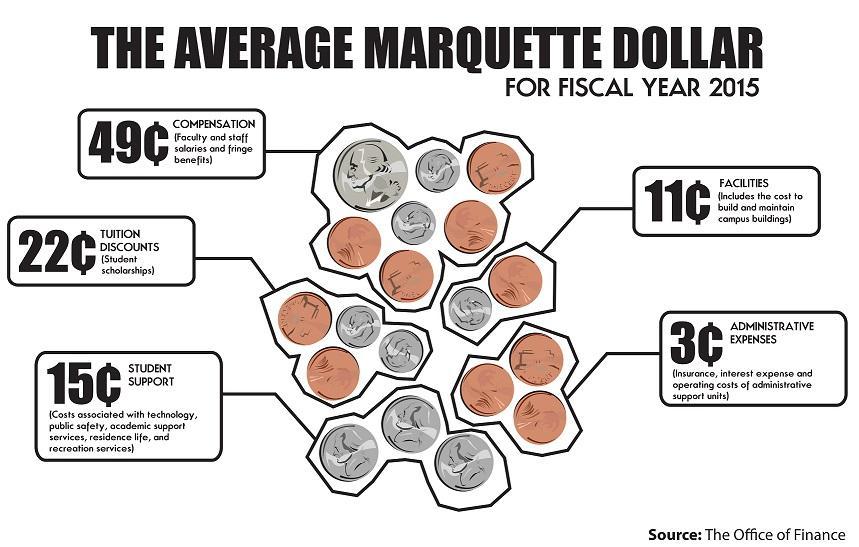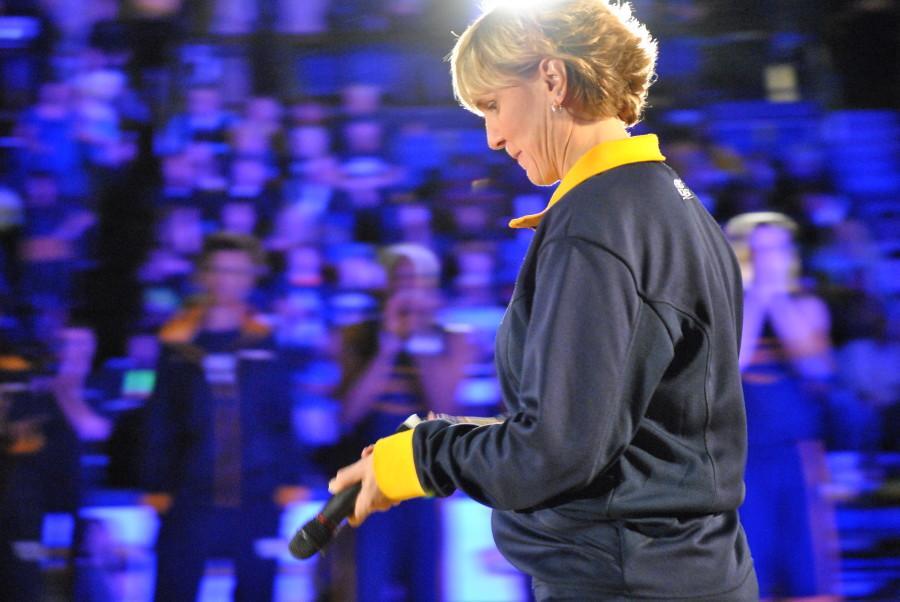Eight years after the university’s Gender Equity Task Force disbanded, many believe Marquette has made significant progress toward eliminating the gap between male and female faculty members’ salaries.
Still, some involved in the original task force believe there’s remaining ground to be gained and analysis of current data is necessary to know whether anything has really changed.
The group was formed in 1999 at the request of University President the Rev. Robert A. Wild. Its purpose was to examine what kinds of factors determine faculty salaries and find out if there were inexplicable differences between male and female salaries, said Cheryl Maranto, associate professor of management in the College of Business Administration.
The task force found that the most questionable disparity between male and female faculty members was in starting salary, said Maranto, who helped analyze data for the group.
That meant it was difficult for women’s salaries to ever catch up to men’s salaries, she said.
However, analyzing data related to salaries is complicated because of the various factors affecting the numbers, said Peter Toumanoff, an associate professor of economics who also helped analyze data for the task force.
For example, many women at Marquette are fairly recent hires, especially compared to men, Toumanoff said.
Since salaries increase with length of time at the university, it makes sense that men would tend to have higher salaries, he said.
Additionally, certain disciplines – such as law, business and engineering – naturally warrant higher salaries than areas like philosophy or English, based on the professional demand in those fields outside the realm of academia, he said.
Since these higher-demand fields tend to be male-dominated, it makes sense that the average salary for a male faculty member would be higher, Toumanoff said.
After the task force presented its findings and recommendations, it was disbanded in 2001 and a Gender Equity Implementation Task Force was formed in 2002 to help enact the recommendations, Maranto said. That group was disbanded the same year.
It advised such changes as adjustments to tenure and merit review guidelines, creation of a standing committee focused on the standing of women at the university, and creation of the Office of the Ombuds, she said.
But Maranto said she wasn’t sure all of the recommendations were adequately implemented.
“There was money set aside for gender equity salary adjustments,” she said. “My personal belief is that was not done in as fundamental and thorough a fashion as it should have been.”
Maranto said she would like to analyze current data to see if gender equity at the university has improved.
“We certainly have made progress, but I do feel that there are areas that remain to be addressed, and I don’t think it’s considered a high priority at this point,” she said.
There is not enough current data available to know whether the discrepancy between male and female salaries has actually diminished or disappeared, Toumanoff said, since the real disparity was found in starting salaries.
Maranto said she thinks the recruitment of a diverse faculty is currently a higher priority for the university than focusing on salary discrepancies.
Provost John Pauly said gender equity remains a concern for the university.
“We’re always encouraging department chairs and deans to keep an eye on this issue, and I think they’re doing a reasonably good job of bringing those cases forward where we do see imbalances or inequities,” Pauly said.
One area that still could be improved is policies toward women with children who are on a tenure track, Maranto said.
Current policies are now largely left up to individual departments, which can be difficult for professors who must contend with the possibility of unsupportive administrators, she said.
Olga Yakusheva, an assistant professor of economics, said a lack of gender equity continues to be a problem in businesses across the country.
On average, women still make 70 cents for every dollar a man makes, Yakusheva said.
However, it’s not possible to definitively attribute that to gender bias because of the multitude of other factors affecting salaries, she said.
But she said she doesn’t think her gender has ever worked against her at Marquette and that the university has effectively worked to stem gender disparities, for the most part.
“I think where the problem may still persist is with women who may have been hired in the past on terms that were slightly less than preferential compared to males,” she said.









